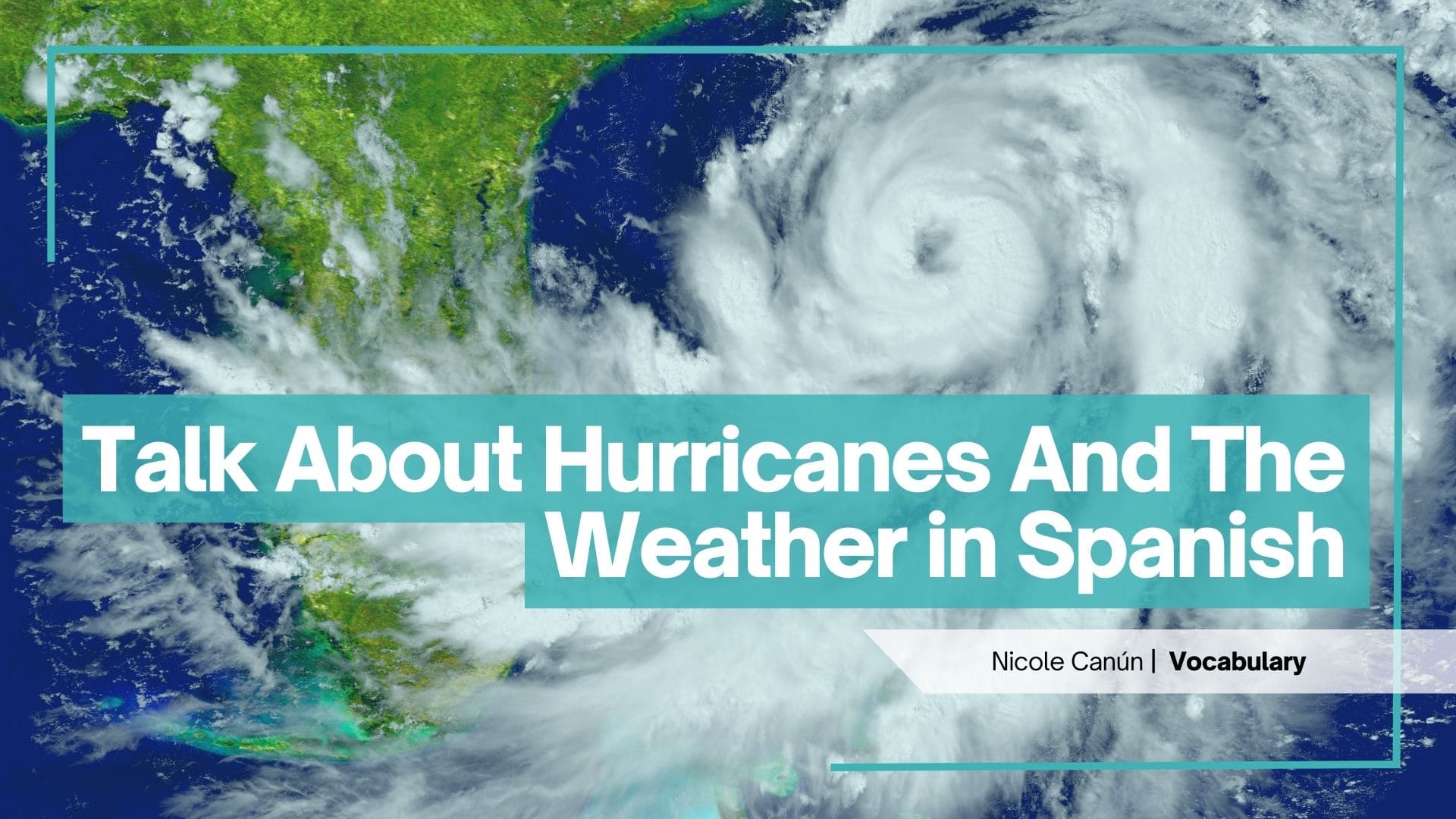
Car Parts Spanish Vocabulary List: Learn Using Pictures
Learning how to discuss car parts in Spanish is key if you take a road trip in a Spanish-speaking country. You don’t want to take the risk of driving in Latin America or Spain and being unable to ask for help. Read this article for helpful lists of vocabulary words, as well as verbs related to car parts in Spanish. ¡Aprendamos de las partes de coches en español!Let’s learn about...Read More
Talk About Hurricanes And The Weather in Spanish
How do you say hurricane in Spanish? Weather is a universal topic that transcends linguistic barriers. Everyone knows it at the ultimate chit-chat conversation. We discuss it daily, and it plays a significant role in our lives, influencing our activities and moods. When it comes to Spanish-speaking regions, conversations about the weather become even more culturally...Read More
No Worries: How to Say “No Problem” in Spanish
Let’s learn how to say “no problem” in Spanish! Although naturally, all those who learn Spanish use the translation “no problemo” this is an incorrect expression. That phrase is a clear example of the common misconception that to speak Spanish, you only have to add an “o” at the end of a word. People are generally used to using the phrase “no problem” in...Read More
Your Spanish Guide to Outer Space in Spanish
Learn all about space in Spanish in this article that will take you to the moon! Are you a Spanish language learner? An astronomy enthusiast? A student or educator? This article will provide a comprehensive guide to outer space terminology in Spanish. The exploration of outer space has always been a subject of wonder and fascination for humanity. From ancient civilizations to...Read More
Spanish for Construction Workers: Conversation Practice
Learning Spanish for construction workers is one of the best decisions you can make for your business. Being able to start a conversation in Spanish with your clients, workers, builders, and other professionals will give your day-to-day an important boost. There are words related to construction that are easy to identify in English, but if you know them in Spanish, they can help you...Read More
Your Go-to Guide to Say Safe Travels in Spanish
Wish your friends safe travels in Spanish! Summer vacations have begun, and there are many places where you and your friends or family can go. Many of these tourist destinations are Spanish-speaking countries or cities where you will find a large majority of Spanish-speaking population. Also, your Latin American or Spanish friends will surely return to their native country to visit...Read More
How to ask for help in Spanish: A Conversation Guide
Do you know how to ask for help in Spanish in case of an emergency? Let’s not be dramatic, but how would you ask for help if you get lost in a secluded beach town in Mexico? Learning how to ask for help in Spanish is a crucial topic when learning the language. However, there are different ways to do it, and not all apply to every situation. To achieve fluency in...Read More
18 Meanings of ‘Cuenta’ in Common Spanish Idioms
Cuéntame (tell me), are you looking for Spanish idioms with the word cuenta? Perfect! You landed on the right page! People use cuenta to say multiple things like the word “account,” as in bank account, or to realize, to count, to tell, after all, and many more. So it’s important to know the difference between each to expand your language knowledge and sound like a native Spanish...Read More
The Sweetest Guide to Valentine’s Day Vocabulary in Spanish
Valentine’s Day is on the horizon. In Latin America, much like in the United States, it’s a day when upscale, romantic restaurants are booked to capacity and shops are overflowing with flower bouquets and chocolate truffles. Happy couples walk along hand-in-hand, and everything is basked in rainbows and candlelight. Chocolate, roses, lingerie, and love poems are some of the common...Read More
